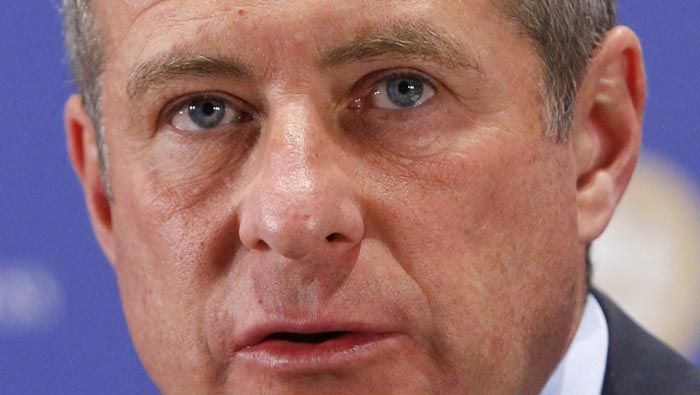
Moscow: Demand has soared for a planned Eurobond that sources said is meant to help Russians bring money back home in a way that would protect them from being damaged by potential new sanctions.
Initial bids from wealthy Russians for the sovereign Eurobonds, due to be issued next year, had come in at $200 million, a source in a state bank and another from the Finance Ministry told Reuters.
But demand has now topped $3 billion, the Finance Ministry source said, declining to speculate on the reason.
Sources told Reuters in early December that wealthy Russians facing the prospect of targeted US sanctions next year had floated the idea of a special treasury bond to help them repatriate assets. Crucially, unlike with bank accounts, holders would remain anonymous under the proposal, they added.
Two weeks later, authorities said they planned to adjust the terms of a Eurobond planned for next year, in a way that would help Russians repatriate financial assets.
Russians would be given preference over foreigners during the sale, Finance Minister Anton Siluanov later told reporters.
The ministry would be ready to increase the Eurobond offer and to cut the domestic borrowing plan to accommodate the demand if needed, Siluanov said.
Asked about the level of interest in the bonds, Kremlin spokesman Dmitry Peskov told reporters on Friday that it was too early to say because they had not yet been launched.
"Wait for a while, nothing was launched yet so its too early to talk about the (degree of) interest," Peskov told a conference call.
"Requests by businessmen"
The issues would be issued via the Russian National Settlement Depository — a local version of Euroclear, the Finance Ministry said earlier, a move which would allow the holders to keep anonymity.
The ministry said in the emailed comments to Reuters on Thursday that the proposed special conditions of the Eurobond issue were "a step towards a number of requests by businessmen". It declined to elaborate further.
The ministry source said the adjusted Eurobonds had been nicknamed "Beryozki", after the oligarch Grigory Berezkin, who the source said was a driver behind the original proposal to launch a special treasury bond.
Berezkin, whose assets range from power transmission to the media, said on Thursday the idea for a special instrument had first come from the Finance Ministry but acknowledged he had supported it and discussed it with other business leaders.
"We have supported this idea within the Russian Union of Industrialists and Entrepreneurs (RSPP), and I was among whose who took part in the discussions on the different levels, including in the government," he told Reuters.
Berezkin, asked by Reuters whether he would buy the new Eurobond, said: "I will study it when the issuance documents are ready ... If it is a standard Eurobond, then it is a very good tool."
Peskov, asked whether Berezkin was behind the original idea, said on Friday: "As far as I am aware, the proposal was drawn up within the RSPP ... and Berezkin took part."
There is no reliable data on how much money Russians have abroad. According to a rough estimate by Gabriel Zucman, an assistant professor of economics at the University of California at Berkeley, Russians had about $200 billion worth of financial assets in offshore tax havens as of 2014, equivalent to 10 percent of Russia's GDP that year.
The US government is due to draw up a blacklist of individuals early next year under a sanctions bill passed overwhelmingly by Congress soon after Donald Trump became president and signed by him in August.